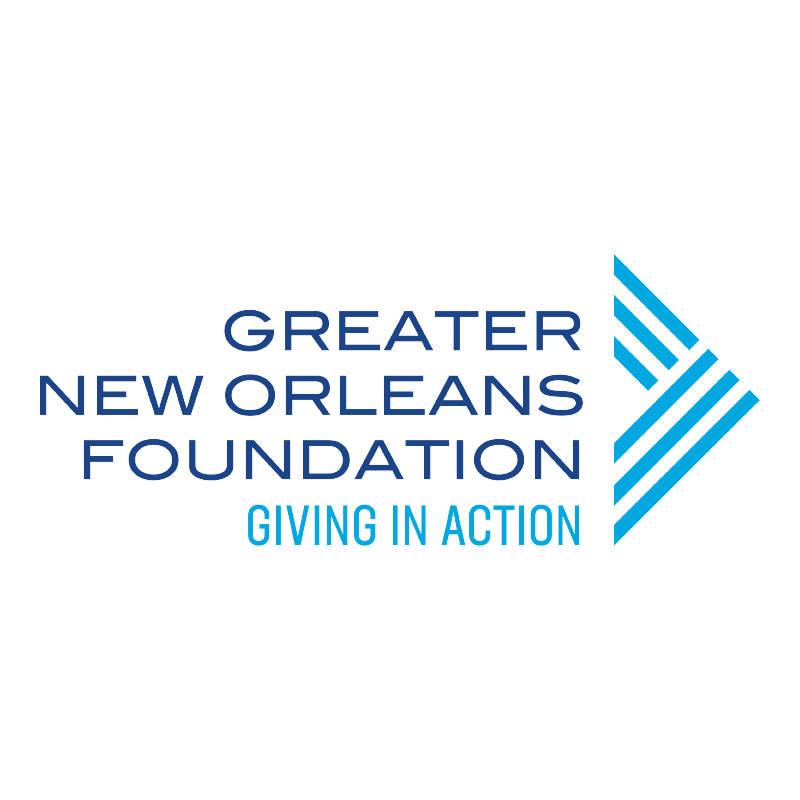This category measures how well our community supports renewable energy, energy that is made from renewable resources that do not pollute our air, and energy efficiency strategies. New Orleans is one of the most vulnerable cities in the country to sea level rise caused by climate change, thus, it is important that we move towards a clean energy future.
What is your impact in this category? Take the Love Your City Assessment and learn how you can maximize your organization’s impact!
DID YOU KNOW?
That New Orleans is ranked 47 out of 50 cities in terms of our energy efficiency.
That New Orleans ranks in the top 10 for per capita solar energy.
That New Orleans CNO has committed to 100% NET-ZERO carbon emissions by 2040.
That New Orleans is one of the most vulnerable cities to all effects from climate change that result from fossil fuel use.
That Louisiana experiences 35 “danger days” annually, but by 2050, the number could rise to 115 days of the year. “Danger Days” are those when the heat index (a calculation of heat and humidity together) rises above 105 °F.
That New Orleans has the only City Council in the US that has separate regulatory authority over an Investor Owned Utility (IOU), Entergy New Orleans.
That as of January 1st, 2019, 223,978 MWh have been saved with Energy Smart with an additional savings goal for 2020-2022 of 257,561 MWh. This total : 481,539 MWh is enough energy to power over 37,500 average NOLA households for a year.
OUR CHALLENGE
New Orleans is one of the top two cities with highest energy burdens in the country (highest portion of income on energy).
WHAT YOU CAN DO / WHO CAN HELP
Energy efficiency solutions for homes and businesses / Energy Smart / 504-229-6868
Weatherization for low income customers / Quad Area Community Action / 225-209-0724
Energy reduction program for big buildings in downtown / Downtown Energy Challenge / 504-658-8697
Find reputable solar installers / Solar Energy Industry Association / 202-682-0556
Find reputable solar installers / Gulf State Renewable Energy Association / 504-383-8936
Resource for educators and non-profits looking to improve their energy efficiency / Energy Wise Alliance / 504-222-2920
Energy efficiency solutions for homes & solar / Posigen / 866-767-4436
Energy management for homes and businesses / Green Coast Enterprises / 504-281-4372
Training for green infrastructure jobs / Louisiana Green Corps / 504-613-4661
Solar and electrical vehicle consulting / Solar Alternatives / 504-123-4567
Contact your at-large and district City Council Member as well as the City Utility Regulatory Office (CURO) with issues, questions, and suggestions related to Entergy New Orleans / 504-658-1110
WHAT DO POLITICAL LEADERS NEED TO KNOW ABOUT YOUR SECTOR?
We need to be transitioning to affordable, renewable energy with community ownership, and equity as a priority
We need robust Energy Efficiency and Demand Side Management programs- that prioritise low income households and multi family homes- to be considered on a level playing field with supply-side resources
Energy burden and Energy inequity do not happen in a vacuum rather they intersect with a wide variety of other social and economic inequities like environmental justice, health disparities, food insecurity, education funding bias, job insecurity, access to affordable housing
WHAT ARE YOUR LOCAL POLICY RECOMMENDATIONS?
Enact a Resilient and Renewable Portfolio Standard.
Expand and extend robust, inclusive Weatherization and Energy Efficiency programs for homes and businesses.
Halt all fossil fuel investments, subsidies, tax exemptions, and bailouts.
Explore options outside of the typical Investor Owned Utility, such as electric cooperatives.
Re-allocate funding from the Advisors to the City Council to incorporate local expertise into leadership (expand CURO).
Have all elected and campaigning officials sign an agreement to abstain from accepting contributions from utilities they regulate.
Explore opportunities for higher levels of transparency within utility and public finances.
Significantly reduce Industrial Tax Exemptions given to corporations and move decision making power from the Commerce and Industry Board to local authorities and the public.
WHAT ARE YOUR STATE POLICY RECOMMENDATIONS?
Develop and implement a Resilient and Renewable Portfolio Standard.
Expand and extend robust, inclusive Weatherization and Energy Efficiency programs.
Halt all fossil fuel investments, subsidies, tax exemptions, and bailouts.
Update current building codes and include a mechanism for periodic review and updates.
Prioritize customer access to renewable energy, with an emphasis on customer owned and just compensation.
Develop an offshore wind task force to analyze offshore wind potential in Louisiana.
Have all elected and running officials sign an agreement to abstain from accepting contributions from utilities they regulate.
Explore opportunities for higher levels of transparency within utility and public finances.
Reduce regulator and decision maker’s (ex. LPSC and Utility Coop boards) term limits to facilitate and develop new leadership.
Support and implement policies from the Vision Equitable Climate Action (https://equitableclimateaction.org/), the Green New Deal, and Gulf South for a Green New Deal.
WHAT ARE YOUR FEDERAL POLICY RECOMMENDATIONS?
Halt all fossil fuel investments, subsidies, tax exemptions, and bailouts.
Transition to 100% Renewable Energy by 2050 (while keeping social and environmental justice at the forefront). Expand and extend federal tax incentives for renewable energy investments.
Support and implement policies from the Vision Equitable Climate Action (https://equitableclimateaction.org/), the Green New Deal, and Gulf South for a Green New Deal.
Reverse the decisions and subsequent effects of Buckley v. Valeo, 424 U.S. 1, and First National Bank of Boston v. Bellotti, 435 U.S. 765.





